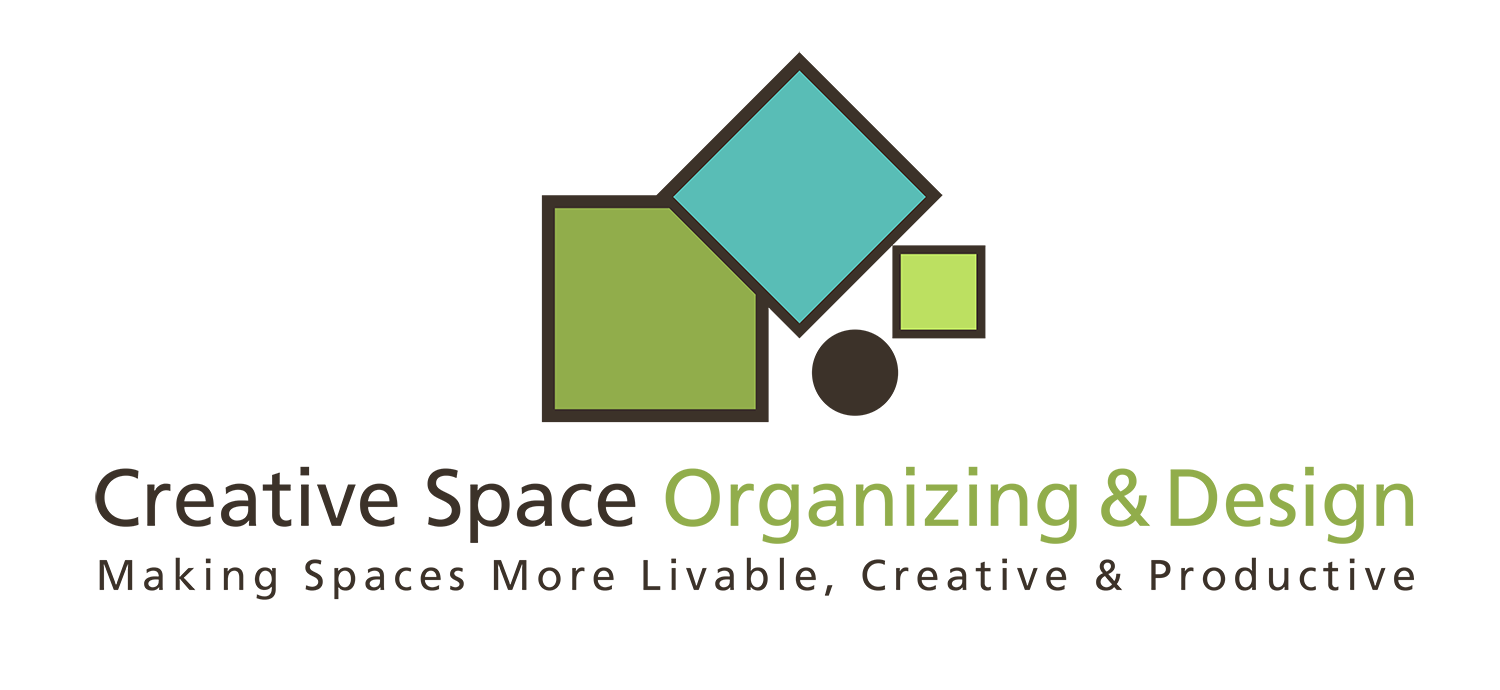While organizers help clients deal with the physical things in their lives, we also help them with the emotional and mental clutter that goes along with it. I would estimate that organizing is about 70% mental/emotional and 30% physical. Helping clients move past the emotional and mental barriers is the key area for organizers. Helping them let go of things they think they might need someday and to help them realize that all the things they keep in boxes are taking up space. When sorting through a pile of books, my client was making decisions on which to keep and which to pass on. Were these books she was saving, ones she had already read, one’s she was really going to reread or revisit at some later date? Most likely not. They will most likely stay in the newly packed boxes for another 10 years or more until she revisits them again. Our job as organizers is to gently remind them that those books are readily available if they truly need them again and holding onto them just keeps them weighed down.
It can challenge some organizers with clients who feel compelled to keep this physical “thing” because it has some perceived meaning, when in reality, it only holds the meaning with give it. This greeting card from a former lover, this book from childhood, this furniture inherited from a deceased relative all contain some perceived meaning, emotion and sentiment that the owner ascribes to it. I recall Barbra Streisand speaking about holding onto a jar of candy for over 25 years her deceased stepfather had given her after seeing her on Broadway! One day she wondered why she had been saving it for all this time, particularly since she never liked the man to begin with. That is how insidious saving things can be. We have these things and don’t question why they are in our lives. They take up space and gather dust until one day, if it comes, we look to these things and question their validity. I worked with a client recently who had boxes of pieces of wrapping paper and pieces of ribbon and such, most which couldn’t be reused. Why was she saving these things that she had ascribed some importance and value to and felt compelled to keep?
Clients differ in their approach in dealing with attachment to their things. Some are fed up and are ready to eliminate outdated and outworn things while others agonize over things that they’ve given plenty of meaning to and feel compelled to keep it. My sense is some fear a wrathful ancestor returning from the grave to chastise them if they purge an antiquated silver set they never use. It takes the willingness to look at what we have and question if it is serving a purpose and why we have it. I am not saying to clear out everything old. There are many things that remind us of loving connections and memories with others that should be cherished and revered. We just don’t need to keep EVERYTHING that others have given us or things that we have collected on our way through life. We can also photograph the item and let the actual physical thing go, freeing up space while keeping a visual reminder of the item.
In ancient Egyptian times, Pharaohs were buried with their treasures, assuming they could reclaim it in the next lifetime. Sorry, no such luck. And thank God. Would we really want to come back to all of it, even if we did have lots of extravagant things? Sorting through our many belongings requires us to see our things in a new light and ourselves in relation to them. The objects we own have no inherent meaning except the ones we give them. Look at people who lose everything in a fire, flood, landslide or other disaster? They have literally been torn away from what they own and must realize the importance and value of what’s truly important. It’s not the physical stuff that helps them through the disaster, but their connections with others and the support and aid they receive.
Take a look around you and reassess what you have. Make some new decisions about these things to see if they are serving or hindering your life and surroundings. Make a choice to let go of that which has outlived its usefulness, let it go, and note the difference. If you find you need need help with this process, call Steve at Creative Space Organizing to assist you at 510;501.1213

